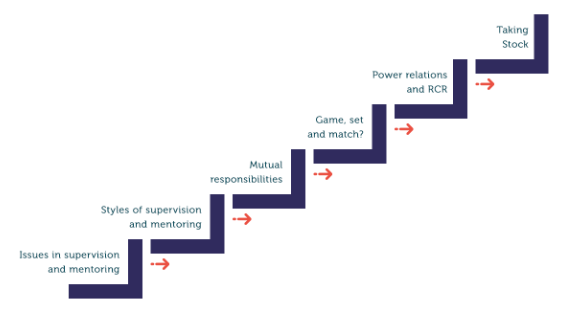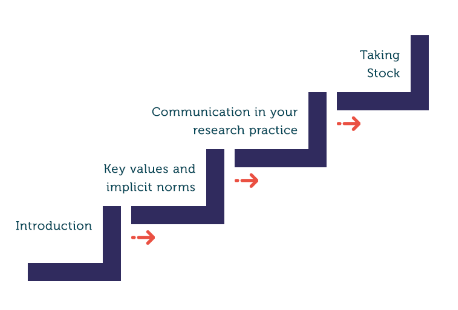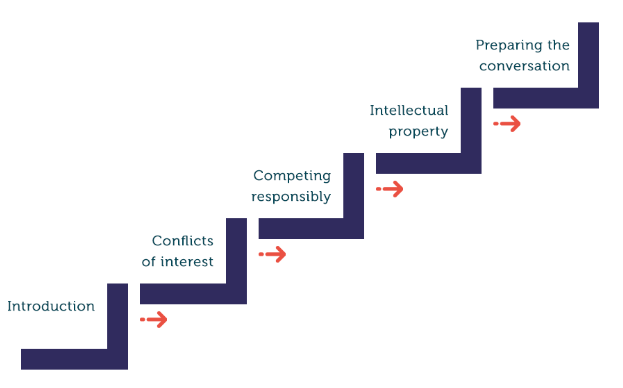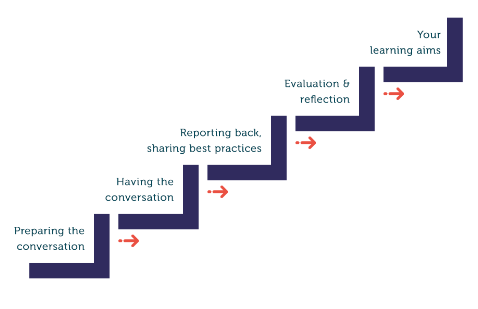Responsible Research through supervision, mentoring and working together
Responsible Research through supervision, mentoring and working together
What is this about?
This course has 5 learning units. It spans five weeks and involves about 12.5 hours of work in total. The program introduces you to key challenges that you could face when collaborating with others during your PhD research, as well as a range of practical exercises.
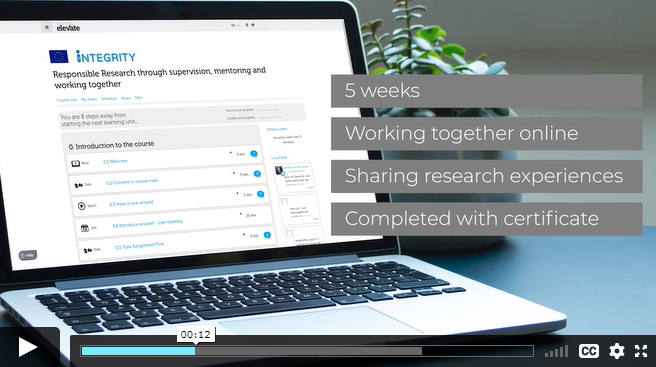
One way of showing responsible conduct in practice is to talk about challenges that you could face as a PhD candidate with your supervisor or your mentor. That is why – as part of the course – we ask you to schedule a meeting with your supervisor or your mentor about RCR. At the end of every learning unit, you can collect possible topics for this meeting.
Collaboration is an important part of this course. There will be 3 plenary sessions (in week 1, 3 and 5). Next to that, there are interactive assignments in small subgroups (the group allocation is announced on the news forum). Subgroups can decide to meet live (online), or to work asynchronously.
A certificate will be provided to participants who completed every part. This course was developed in the H2020 INTEGRITY project by Mariëtte van den Hoven, Miriam van Loon, Hesther van Gulick and Eline Borsboom, and funded by EU H2020.Practical Tips
Introduction to Responsible Conduct of Research (RCR)
In this learning unit, we will provide an introduction to Responsible Conduct of Research (RCR).
Expectations and responsibilities in supervision and metoring
In this learning unit, we will focus on expectations and responsibilities in supervision and mentoring. This is a two-way street. It pertains to supervisors/mentors and to those who are supervised/mentored.
Supervisors can be mentors, but your mentor does not necessarily have to be your supervisor. Depending on your personal needs and local circumstances, you may have a mentor other than or besides your supervisor. An important difference is that a supervisor has a direct hierarchical relation with the person who is supervised.
Below you will find an overview of the content of this learning unit.
Culture, colleagues and communication
In this learning unit, we will focus on the social context in which you perform your research, specifically on culture, colleagues and communication. The aim is to help you reflect on the extent to which the social context in which you perform your research helps and can help to empower you for RCR.
It is well recognized that conduct of individual researchers is influenced by their social and institutional surroundings, like peer pressure to work hard, to strive for high impact journal publications and to be competitive. This impacts RCR as well: the context in which we perform our research, influences the likeliness to act in accordance with RCR values, principles, and norms. This is one of the reasons why, in this course, we consider it important to connect RCR training to your actual research practice.
Below you will find an overview of the content of this learning unit.
Collaboration outside the research team
In this learning unit, we will focus on collaboration outside your research team. This can entail a broad range of actors who are not directly involved in the research itself, but who are involved in broader forms of collaboration in relation to your research, like funding agencies, administrators, publishers, editors, policy makers, companies, and societal stakeholders.
Like collaboration within your research team, collaboration outside the research team can influence RCR. Ideally, you discuss this in conversations with your supervisor/mentor.
Below you will find an overview of the content of this learning unit.
Learning to take responsibility and its boundaries
The overarching aim of this learning unit is to make sure that you can make the most of the conversation with your supervisor/ mentor.
Having a conversation with your supervisor or mentor on RCR challenges is one way to take responsibility for Responsible Conduct of Research. In line with the positive approach of this course, the idea is not to criticize anyone. On the contrary, the aim is to provide a platform for a constructive conversation. You could ask questions, check mutual expectations, share thoughts about RCR challenges that might occur, and how you could face them together, et cetera.
Below you will find an overview of the content of this learning unit.
Remarks
Integrity issues and responsible conduct of research is about you, your project, and the research practice that you work in. Research practices might offer opportunities for RCR but can also include very difficult challenges that can have a huge personal impact. This course takes a positive approach to RCR, without shying away from potential problems.
To allow for open conversations, this SPOC provides a safe environment. Technically (we took care of that), but also personally and professionally. To ensure the latter, please keep personal matters that you see, hear, or read from others, strictly confidential. A safe environment is further promoted by respecting the contributions of others, without prior judgment.
